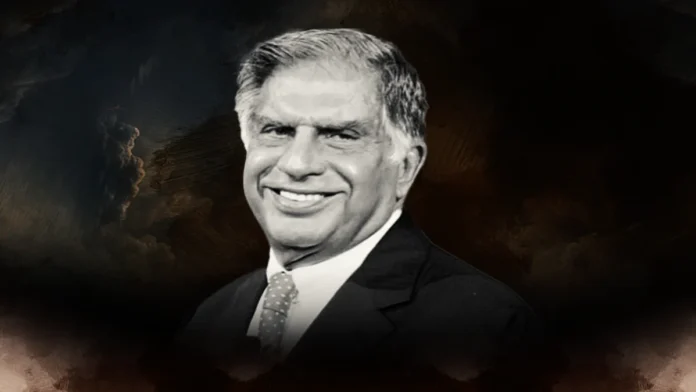Ratan Tata’s Legacy: Key Business Moves from JLR Acquisition to Nano Launch
Ratan Tata Passes Away: JLR Acquisition To Nano Launch — A Look Back At His Key Business Decisions
Ratan Tata, one of India’s most influential and respected business leaders, passed away on Wednesday after a prolonged illness at the age of 86. He led the Tata Group, one of India’s largest and oldest conglomerates, for 21 years, from 1991 to 2012. Under his stewardship, the Tata Group transformed from a primarily India-centric enterprise into a global business powerhouse, spanning a wide array of industries from salt to software.
Here, we revisit some of the pivotal business decisions Ratan Tata made during his tenure as chairman of Tata Sons, the holding company of the Tata Group.
One of the most significant moves under Ratan Tata’s leadership was the acquisition of Jaguar Land Rover (JLR) by Tata Motors. In 2008, Tata Motors bought the iconic British luxury carmaker for $2.3 billion. This bold decision marked Tata Group’s foray into the luxury automobile market and signified its ambitions on the global stage. Despite initial skepticism, the acquisition proved to be a masterstroke. By fiscal 2024, JLR recorded its highest-ever revenue of £29 billion and a net profit of £2.6 billion, underscoring the success of the acquisition.
Ratan Tata’s vision to make affordable cars accessible to the masses led to the launch of the Tata Nano in 2008. Priced at an introductory rate of Rs 1 lakh, the Nano was intended to revolutionize the automotive industry by providing an economical option for middle-class families. However, despite the initial buzz, the Nano did not achieve the expected success. Its highest sales were recorded in fiscal 2012, with 74,527 units sold. Production was eventually halted in 2018 due to declining sales and various market challenges. Nonetheless, the Nano remains a testament to Ratan Tata’s innovative spirit and commitment to societal needs.
Under Ratan Tata, the Tata Group ventured into the domestic telecom market, launching Tata Docomo in 2008 in partnership with Japanese telecom giant NTT Docomo. Known for its competitive pricing, Tata Docomo quickly gained traction in the Indian market and became the first private telecom company to offer 3G services in 2010. However, despite initial success, Tata Docomo faced financial difficulties, leading to NTT Docomo’s exit in 2014. By 2017, the telecom operations were sold to Bharti Airtel. This endeavor highlighted the Tata Group’s willingness to explore new sectors, even if not all ventures led to sustained success.
Ratan Tata also spearheaded the Tata Group’s entry into the defense and aerospace sectors. In 2007, Tata Sons launched Tata Advanced Systems Ltd. (TASL) to provide aerospace and defense solutions. As one of the early private sector entrants in this field, TASL aimed to tap into the burgeoning defense market. While the company faced stiff competition, it managed to secure a revenue of Rs 342 crore in fiscal 2024. TASL’s recent partnership with American aerospace giant Lockheed Martin signals its ongoing efforts to expand its market presence and capabilities.
Another landmark decision during Ratan Tata’s tenure was bringing Starbucks to India. In October 2012, Starbucks entered the Indian market through a 50:50 joint venture with Tata Consumer Products Ltd. Today, Tata Starbucks operates over 390 stores across 54 cities, including major urban centers like Mumbai, New Delhi, Hyderabad, Chennai, Bengaluru, Pune, and Kolkata. The venture has successfully established Starbucks as a prominent coffee brand in India, employing a workforce of over 4,200 people and expanding its footprint to cities such as Chandigarh, Ahmedabad, Surat, and Vadodara.
Although Ratan Tata was not the chairman of Tata Sons during the acquisition of Air India in 2021, he played a significant role as chairman emeritus. The Tata Group acquired the struggling national carrier for Rs 18,000 crore, marking Air India’s return to its original owner. Air India had been nationalized shortly after India’s independence. Ratan Tata expressed hope that the acquisition would restore Air India’s former glory, stating that the Tata Group would have the opportunity to rebuild its reputation. By fiscal 2024, Air India had reduced its net losses by 60% to Rs 4,444 crore, indicating positive progress.
Under Ratan Tata’s visionary leadership, the Tata Group underwent a remarkable transformation, making strategic decisions that not only expanded its global footprint but also diversified its business interests. His legacy is reflected in the group’s continued prominence across various sectors and its commitment to innovation, quality, and social responsibility. Ratan Tata’s tenure as chairman will be remembered as a defining era that propelled the Tata Group into a new phase of growth and global recognition.

